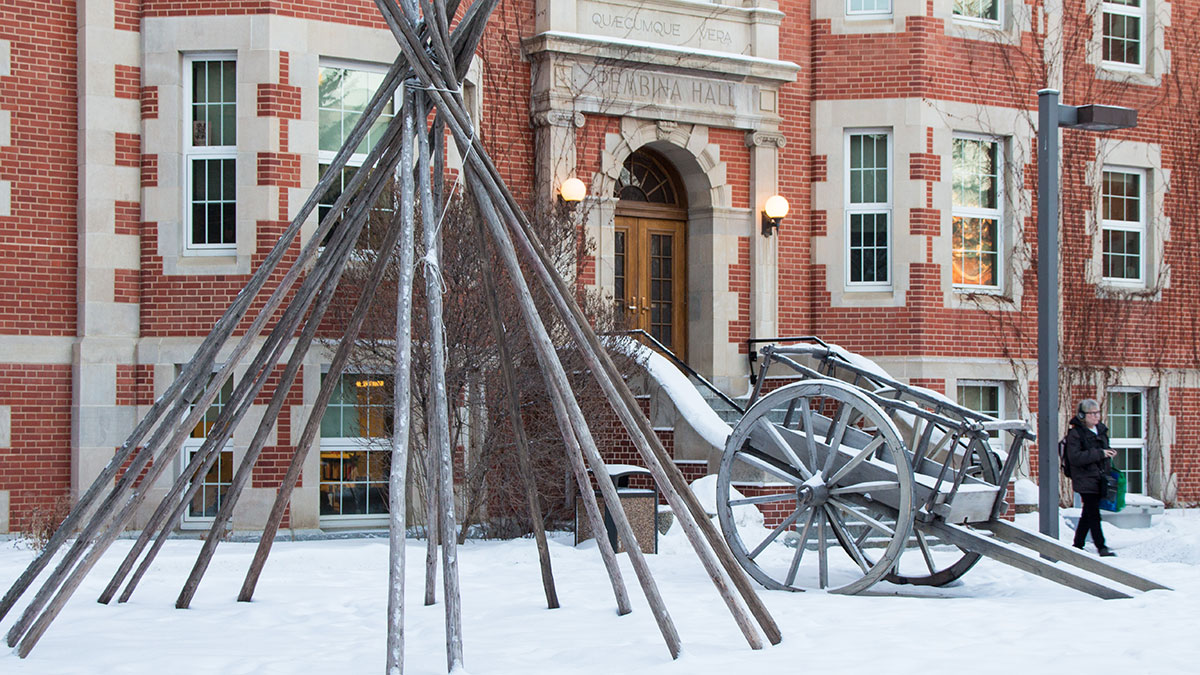U of A Native Studies open online course is the most popular in Canada
 Christina Varvis
Christina VarvisA massive open online course (MOOC) created by the University of Alberta’s Faculty of Native Studies has become the most popular in Canada.
Following up on the success of Dino 101 and Mountains 101, the U of A’s two flagship MOOCs, the former Dean of Native Studies, Maori scholar Brendan Hokowhitu, decided to start developing “Indigenous Canada,” an online course designed to promote public education on Indigenous learning. MOOCs are university courses that are open to members of the public. Students can take MOOCs either for credit during an academic term or as free, non-credit options on their own time. Paul Gareau, an assistant professor who joined Native Studies in 2016, now teaches Indigenous Canada.
“The MOOC really was a labour of love because everyone in the Faculty had insight into it,” Gareau said. “It was very collaborative, which for us is very Indigenous — it’s not just one person.”
Gareau said the focus on collaboration has helped the MOOC shift the paradigm of public Indigenous education. Aiming to go beyond a Western perspective of history, the course is set up in 12-module “themes” which focus on Indigenous perspectives. These themes include Indigenous rights, law, politics, activism, and contemporary life and art, as well as the fur trade and approaches to the environment.
“From this spirit of collective work, we wanted to tell a different story,” Gareau said. “The story you often hear (of Canadian history is) always this sort of teleological narrative of a move from pre-contact savagery to the modern era.”
A year past its launch in March 2017, “Indigenous Canada” boasts an enrollment of roughly 19,000 people, with 13,000 people engaging with the course materials and 3,000 people having completed the course. 200 people sign up every week, and Gareau said libraries, schools, and government agencies are interested in the course due to its grounding in Indigenous scholarship.
“It’s an online platform that speaks of Indigenous experiences from Indigenous people — it’s really rare,” Gareau said. “Having this kind of cultural competency is really valuable (for non-Indigenous students as well).”
Members of the public can take the course for free through the course-hosting website Coursera, either on their own time or in a cohort, or pay $60 to gain a certificate. U of A students can take the course for credit in the Fall term as Native Studies 201, with extra readings and assignments. While the for-credit version currently caps at 40 students, Gareau plans to redesign the course assessment to accommodate larger cohorts with multiple-choice open-book exams to run year-long. Gareau said the course can provide non-Indigenous students with new perspectives on both Indigenous and Western learning.
“(Native studies has) been this really incredible nascent field where we are doing the most we can to discipline our discipline,” Gareau said. “That means providing to non-native studies people the value of native studies as a discipline.”
Ultimately, Gareau hopes the course can provide students with the knowledge and critical skills to take a hard look at Canadian society. For non-Indigenous students working in STEM fields, Gareau said the course can uncover cultural aspects of the environment beyond scientific facts, reminding them to “look around.” Gareau sees the course and his Faculty in general as ways to help dismantle colonial power and knowledge structures.
“(Right now), it’s really an era of reconciliation where settlers are really having a paradigm shift around the impact of colonization,” Gareau said. “(We want people to) see that Indigenous knowledge and ways of being (aren’t) negated by Western thought.”




